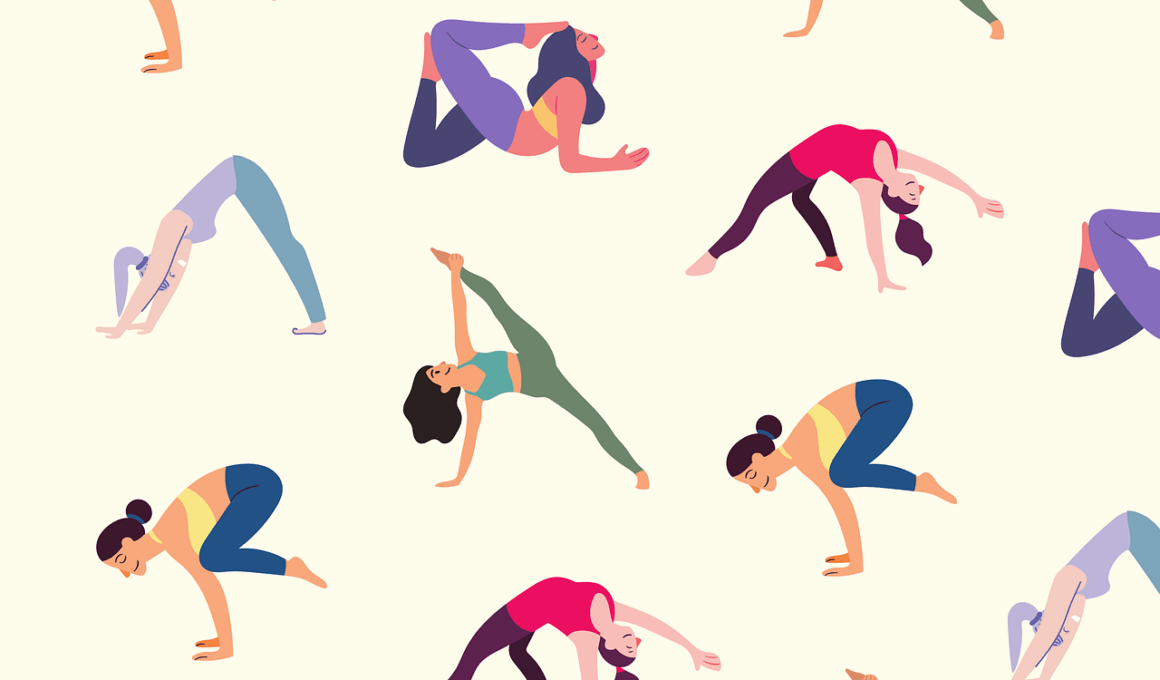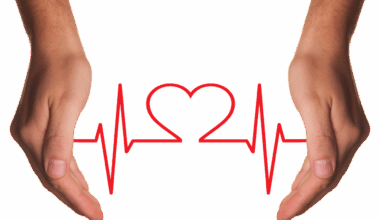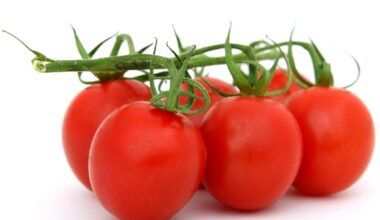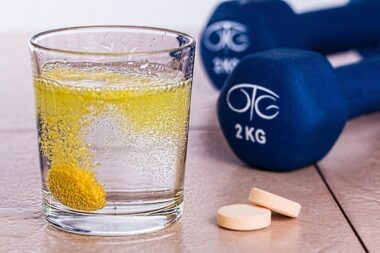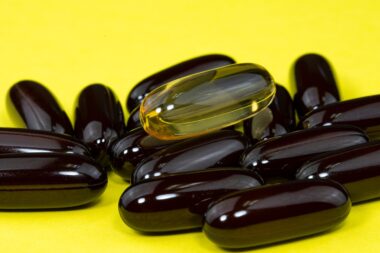Avoiding Deficiencies: Key Vitamins Every Active Woman Needs
Vitamin D is a crucial nutrient that active women often overlook, especially those who spend most of their time indoors. Adequate vitamin D levels support bone health, promote immune function, and can even elevate mood. Sun exposure is one source of this vitamin, however, factors like skin type and sunscreen use greatly affect absorption. Additionally, some women may find it difficult to get enough vitamin D through diet alone, as food sources like fatty fish and fortified dairy are not always staples. Consequently, taking a vitamin D supplement during winter months or in regions with limited sunlight can help mitigate deficiencies. Notably, getting a blood test to check vitamin D levels is advisable, as supplementation needs vary. Consider looking for vitamin D3 over D2, as it is generally more effective at raising blood levels. A daily dose of 600-800 IU is often recommended, but higher doses could be appropriate for certain individuals. A healthcare provider can help determine the right dosage for optimal health. Remember that active lifestyles demand careful attention to nutritional needs, especially regarding vitamins.
Another important vitamin for active women is vitamin B12, which is crucial for energy production and red blood cell formation. As many active women struggle with fatigue, ensuring adequate B12 levels can greatly improve performance and overall well-being. Primarily found in animal products, such as meat, fish, and dairy, this vitamin can be particularly low in vegetarians and vegans. Using fortified plant-based foods or taking a B12 supplement can help fill the gap in these diets. A deficiency in vitamin B12 can lead to anemia and neurological issues, making it imperative for women engaged in rigorous physical activity to monitor their intake closely. Older women may also be more susceptible to low B12 absorption. Regularly incorporating foods like eggs, cheese, and yogurt can help maintain adequate levels. Additionally, it’s a good practice to periodically check B12 status through blood tests, ensuring you’re on the right track. Emphasizing B12 in your diet not only supports energy but significantly contributes to a balanced nutritional profile tailored for active lifestyles.
Vitamin C and Its Benefits
Vitamin C plays a pivotal role in supporting the immune system and enhancing collagen production, which is vital for maintaining healthy skin and connective tissues. For active women, vitamin C becomes indispensable, particularly when engaging in rigorous workouts that stress the body. This powerful antioxidant helps combat oxidative stress and aids in recovery by reducing muscle soreness. Fruits like oranges, strawberries, and kiwi are excellent sources of vitamin C, but supplementation might be necessary for those with insufficient dietary intake. A typical recommendation is aimed at 75-90 mg daily for women, but active individuals might require more to maintain optimal levels. Look for supplements that contain natural forms of the vitamin, as they usually show better absorption rates. Consuming vitamin C-rich foods alongside iron sources is beneficial as it aids in iron absorption. Be mindful of symptoms like fatigue and frequent infections, as they may indicate vitamin C deficiency. Regular monitoring through dietary logs can help ensure that you’re meeting your individual nutritional needs efficiently for your active lifestyle.
Another key vitamin is vitamin E, well-known for its antioxidant properties that help fight free radicals, reducing the risk of chronic diseases. Active women who regularly engage in physical exercise can benefit from vitamin E supplementation because exercise increases oxidative stress in the body. Foods high in vitamin E include nuts, seeds, spinach, and vegetable oils, which should be included in your diet to achieve the recommended daily intake of 15 mg for adult women. Some women might worry about getting enough vitamin E if their eating habits lean towards healthier options that limit fat intake, as vitamin E relies on fats for absorption. Ensuring a balanced diet rich in healthy fats can enhance vitamin E absorption while maximizing the benefits of this essential nutrient. Additionally, supplementation may be considered, especially if dietary sources are inadequate or if underlying health conditions hinder absorption. Keep in mind that excessive supplementation can lead to adverse effects, so it is wise to consult with a healthcare professional before starting vitamin E. A strategic approach is essential.
The Importance of Omega-3 Fatty Acids
Omega-3 fatty acids, though not vitamins, are essential nutrients that women should consider in their supplementation routine. They contribute significantly to heart health, inflammation reduction, and brain function. Active women often experience inflammation from rigorous workouts, making omega-3s even more necessary for recovery and overall well-being. Sources like fatty fish, flaxseeds, and walnuts provide these beneficial fats, but those who do not regularly consume fish should explore omega-3 supplements like fish oil or plant-based algae oils. Aiming for a daily intake of 250-500 mg of EPA and DHA (the active forms of omega-3s) has been associated with various health benefits, including improved athletic performance. Studies suggest that omega-3s may also assist in reducing joint pain and stiffness, which can be crucial for women engaged in high-impact activities. Be mindful of the type and source of omega-3s you choose, as some may contain harmful additives. Including omega-3-rich foods alongside other vitamins creates a robust nutritional profile supportive of an active lifestyle.
Vitamin A is another pivotal nutrient needed for active women, playing key roles in maintaining vision, supporting immune function, and promoting skin health. This fat-soluble vitamin is crucial for women who undergo intense physical activities, as it aids in the recovery and repair of damaged tissues. Rich sources of vitamin A include carrots, sweet potatoes, and dark leafy greens, with beta-carotene serving as a primary precursor to active vitamin A in the body. Women often need around 700 mcg of RAE (retinol activity equivalents) daily, ensuring they have enough vitamin A to support their energetic lifestyles. Supplementation is another option, especially for individuals struggling to meet their needs through food alone. Be aware, however, that excessive vitamin A can be toxic and harmful, making it essential to stick to research-backed guidelines. Keeping an eye on signs of deficiency, such as dry eyes or compromised immune response, can help you maintain a balanced nutrient intake. As with all vitamins, a well-rounded diet incorporating water-soluble and fat-soluble vitamins is imperative.
Folic Acid for Active Lifestyles
Folic acid, or vitamin B9, is especially significant for women of reproductive age and those leading active lifestyles. It plays a crucial role in DNA synthesis and repair, making it essential for overall metabolic health. Women who are physically active need adequate folate levels to support cell division and growth, especially when engaged in high-intensity exercise. Sources of folate include leafy greens, legumes, and fortified grains, all essential for incorporating into the diet. Experts recommend a daily intake of 400 mcg for women, which can be challenging to achieve solely through diet. Therefore, taking a folate supplement can ensure that needs are met, particularly for those with dietary restrictions or reduced intake of folate-containing foods. Deficiency in folic acid can lead to fatigue and weakened immunity, underlining the importance of monitoring intake closely. A multivitamin that includes folic acid is another convenient option, offering a balanced approach to supplementation. Prioritize your nutritional intake, as this vitamin supports not just physical performance but also reproductive health.
Finally, understanding your individual vitamin needs is crucial for tailored supplementation strategies. Women should consider factors like age, activity level, and dietary preferences when determining vitamin intake. Customizing your nutrient requirements can help in avoiding deficiencies that may affect overall health, especially for those pursuing fitness goals. Consulting with healthcare professionals can provide guidance on getting the appropriate supplements and establishing a diet that meets your individual needs. Personalized health plans can help transition from basic vitamin intake to a more sophisticated approach that supports an active lifestyle. Regardless of your routine, being conscious of vitamin levels is essential for optimizing performance, recovery, and long-term health. Keep a food diary or seek educational resources to truly understand how vitamins work in your body. An informed approach to supplementation will empower you to achieve personal bests while maintaining overall wellness. By being proactive, active women can flourish in their fitness journeys and lead healthier lives.
